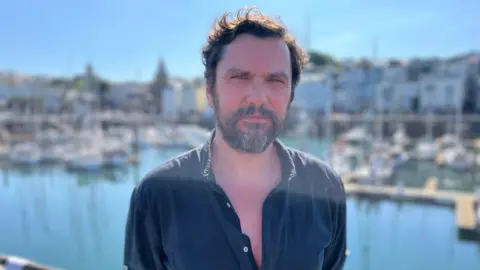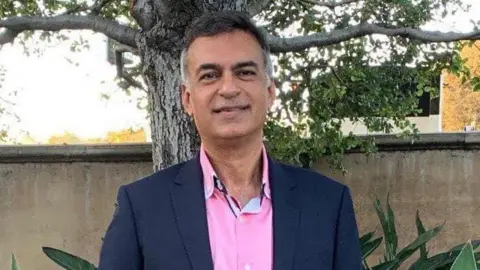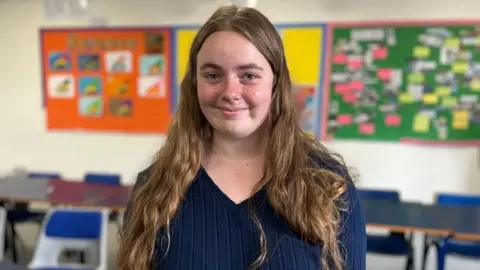Guernsey urged to follow Jersey smartphone ban
 BBC
BBCA campaign group in Guernsey is calling for a community-wide commitment to delay children getting smartphones until they are at least 14 years old.
Oliver Westgarth, from Smartphone Free Childhood Guernsey, said "concern exists across the whole spectrum for parents".
It comes after the Government of Jersey last week announced mobile phone use would not be allowed at its schools and colleges from the start of September.
The group said a survey of 675 parents and carers in Guernsey suggested more than 80% of respondents were concerned about their child getting or having a smartphone.
Mr Westgarth said government, schools and parents needed to work together to bring change.
"We have shown in the last few years that as a tiny little self-governing community, we can sometimes pull together and make things happen quickly," he said.
"We have got a small, self-governing, privileged, amazing little community and we should be able to do some of this benevolent good stuff very quickly."
Smartphones have also been banned from schools and classrooms in countries including China, The Netherlands and Denmark.
A recent University of Birmingham study suggested banning phones in schools was not linked to pupils getting higher grades or having better mental wellbeing.
However, teachers reported improved behaviour at a school where pupils lock their phones away for the day.
 Dr Sanjiv Nichani
Dr Sanjiv NichaniDr Sanjiv Nichani, a consultant paediatrician at Leicester Children's Hospital, said putting children in front of screens in early childhood could hinder their language and communication development.
He said young people were facing what he called a "screendemic".
"I am terrified as to what these screens and apps are doing to our children," he said.
"What I've been seeing is lots of children with communication problems, delayed language and, extremely worryingly, non-verbal children.
"These are children who walk into my clinic normally and have this sort of glazed look on their faces."
Smartphone Free Childhood Guernsey is hosting a free event presented by Dr Nichani on Saturday at 10:00 BST at Les Beaucamps High School.

Katja, a sixth form pupil at Ladies College, led research with a group of Year 9 pupils on a voluntary ban of social media use for two weeks to study the impact.
"We asked them to not use it and come up with their own methods to try and stop using it so that it would have more of an impact on them," she said.
During the trial, the 12 students reported feeling more present, less distracted and more engaged in face-to-face conversations.
Most respondents reported spending more time with family and friends and found they had more free time than they expected.
"If the whole school is having no smartphones during the school day, then no-one's going to be tempted to use it really because it's not like they have anyone to message anyway," said Katja.
"If everyone's not using it [a mobile phone], then it feels a lot more like you're a part of something bigger than if you're trying to do it alone, which can feel really scary."
Follow BBC Guernsey on X and Facebook. Follow BBC Jersey on X and Facebook. Send your story ideas to [email protected].
